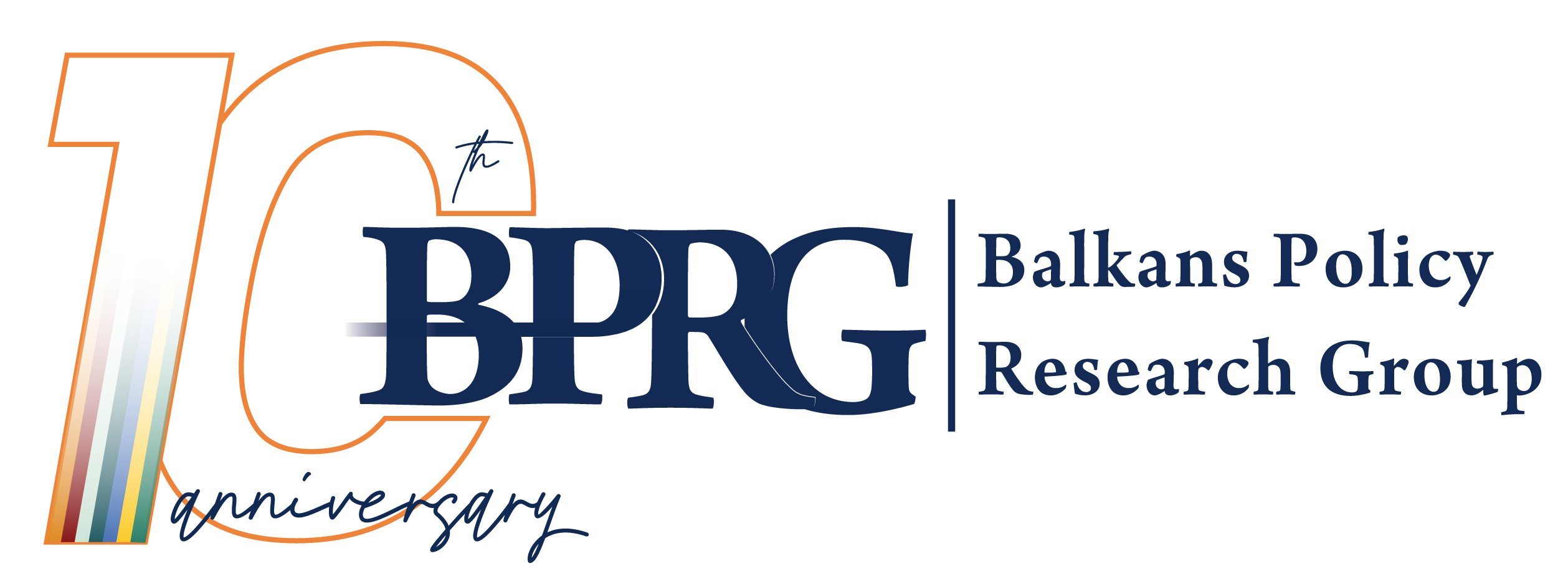Ahead of Berlin Summit: Advancing Kosovo’s Representation in CEFTA and Enhancing Regional Cooperation
On the tenth anniversary of the Berlin Process, Germany aims to launch the Common Regional Market (CRM) II. CRM – an initiative of the Western Balkan countries- is structured around four freedoms: the free movement of goods, capital, services, and people. Building on this foundation, CRM II focuses on enhancing human capital, and skills development, fostering digital transformation, enabling a business-friendly environment, and boosting competitiveness. It aims to eventually integrate the region more closely with the EU Single Market and accelerate its path to accession.
The growing initiatives within the Berlin Process and the CRM II seek to expand the mandate and tasks of CEFTA, which involves seven Southeast European countries (the Western Balkans Six – WB6 and Moldova).[1] The proposed reforms seek to enhance trade among CEFTA members and with the EU. The draft proposal also (vaguely) seeks to revisit Kosovo’s representation in CEFTA. UNMIK joined on behalf of Kosovo in 2006 and remains a signatory member, despite Kosovo’s continuous demands to remove UNMIK’s role from the treaty. Over time, Kosovo institutions have gained much more influence, but no legal changes have been made to fully transfer representation to them.
As an independent country, Kosovo merits a full representation in CEFTA. The regional representation agreement with Serbia (2013), the Stabilisation and Association Agreement (SAA) with the EU (2016), and the recent agreements on the “Path toward normalisation of relations between Kosovo and Serbia” reached in Brussels and Ohrid in 2023, leave no room for a different interpretation. Although changes to the treaty may take time, the EU and its partners should insist on and facilitate the process to ensure Kosovo’s full and uncontested representation. Kosovo, in turn, should proactively negotiate for this long-overdue goal. Civil society will support the government in these efforts.
As an immediate step, the German government should lead the process, and CEFTA members should promptly amend-and Kosovo should accept – all protocols, the rules of procedures, and decisions to fully recognise Kosovo’s authority, removing UNMIK from any role, including participation, representation, communication, and decision-making. The German government and the EU should also be much more demanding on the ratification of previous agreements, including the free movement of people. Failure to implement previous agreements by all Western Balkans countries undermines their governments’ and citizens’ trust in regional cooperation agendas.
CEFTA and regional cooperation initiatives also carry major obligations. Along with securing full representation, the government of Kosovo should promptly and in good faith negotiate all protocols and arrangements that will enable the free movement of goods and people within the WB6. The existing relations and trade barriers undermine Kosovo’s international reputation as a free market area, and addressing these issues will boost Kosovo’s position in regional initiatives. Enhancing regional cooperation, advancing rule-based trade, and equal representation are vital to achieving the objectives of the Berlin Summit. These steps will also help reduce the influence of adverse and parallel initiatives that could exclude or harm Kosovo.[2]
Kosovo’s government should step up its efforts in CEFTA, mobilise all resources, and utilise every available tool to fight against politicisation and trade barriers imposed by Serbia and other countries. Reopening the markets and enhancing trade with neighbours and the EU will help Kosovo regain its position as a trustworthy partner in the region. Lifting the ban on Serbian goods will ease tensions in north Kosovo and help improve relations with the Serb community. The ban harms trade with the EU countries, too. While Germany and others will support Kosovo with sophisticated scanners to monitor goods coming from Serbia, they should also ensure Serbia allows free trade and uninterrupted movement of goods from Kosovo.
With growing agendas like the Green Deal and the Growth Plan, Kosovo must firmly establish itself in regional and EU initiatives and fully absorb funds and programmes. Approving the necessary protocols at the Berlin Summit is vital for the success of other initiatives. Amending CEFTA protocols to enable Kosovo’s full representation and establishing free trade with its members is essential to increasing trade between Kosovo and the EU. These arrangements will also pave the way for Kosovo’s membership in the Single Euro Payment Area (SEPA), which would benefit businesses and financial transactions with the region and the EU, and facilitate the transfer of remittances from the diaspora.
Regrettably, both Kosovo and the German government have failed to engage in transparent and inclusive consultations and dialogue on the agendas of the upcoming Berlin Summit. Both parties need to immediately increase transparency and substantially involve all relevant actors, institutions, political representatives, and non-governmental stakeholders, including civil society and the business community.
The Kosovo government, with the support of international partners and civil society, must act with urgency to secure its rightful place and fully leverage the opportunities that these initiatives offer, while fighting for full-fledged representation.
[1] For more, see Balkans Group policy report, Kosovo’s Contested Representation in CEFTA – A Political and Legal Overview, October 2021.
[2] For more, see Balkans Group policy report, The relaunch of the Berlin Process for the Western Balkans: Making its Objective es more Ambitious, October 2022


